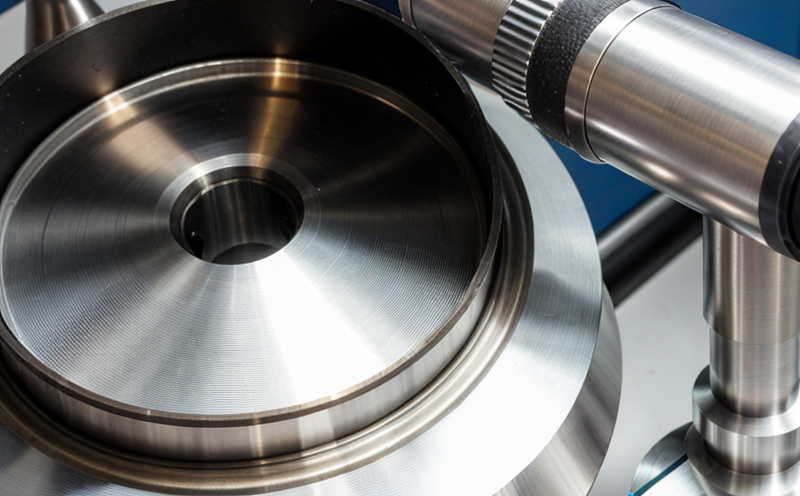ASTM E930 Inclusion Analysis in Powder Metallurgy Steels
The ASTM E930 standard provides a comprehensive framework for the examination of nonmetallic inclusions found within powder metallurgy (PM) steels. This service is particularly valuable for quality managers, compliance officers, R&D engineers, and procurement teams who need to ensure that PM steel products meet stringent performance requirements.
Nonmetallic inclusions can significantly impact the mechanical properties and reliability of PM steels used in critical applications such as automotive components, aerospace parts, and structural elements. ASTM E930 helps identify and classify these inclusions based on their type, size, shape, and distribution within the microstructure.
This service involves a meticulous process that begins with specimen preparation. The raw material or finished product is sectioned into thin slices using precision saws or grinding techniques. These sections are then etched to enhance visibility of the internal structure, allowing for accurate identification and measurement of inclusions under high-powered optical microscopes.
The examination follows a standardized procedure outlined in ASTM E930. This includes:
- Identification and classification of inclusions into categories such as sulfides, silicates, oxides, and others.
- Measurement of the inclusion area and its distribution within the microstructure.
- Evaluation of the impact of inclusions on mechanical properties like strength, ductility, and fatigue resistance.
The results are reported according to ASTM E930 guidelines, providing a detailed assessment of compliance with product specifications. This information is crucial for ensuring that PM steels meet the stringent quality standards required by industries such as automotive, aerospace, and defense.
By adhering to ASTM E930, we ensure accurate and reliable results that are consistent with international standards, enhancing confidence in your supply chain and product integrity.
Scope and Methodology
| Aspect | Description |
|---|---|
| Specimen Preparation | The raw material or finished product is sectioned into thin slices using precision saws or grinding techniques. These sections are then etched to enhance visibility of the internal structure. |
| Microscopy and Etching | Specimens are examined under high-powered optical microscopes after being etched to identify and classify inclusions based on their type, size, shape, and distribution. |
| Inclusion Classification | Inclusions are categorized into sulfides, silicates, oxides, and other types as per ASTM E930 standards. |
| Reporting | The results are reported according to ASTM E930 guidelines, providing a detailed assessment of compliance with product specifications. |
This service ensures that the examination and analysis of nonmetallic inclusions in PM steels is conducted in strict adherence to ASTM E930. The process involves meticulous specimen preparation, high-resolution microscopy, accurate classification, and detailed reporting. This approach guarantees reliable and consistent results.
By following this standardized methodology, we ensure that the examination and analysis of nonmetallic inclusions in PM steels is conducted in strict adherence to ASTM E930. The process involves meticulous specimen preparation, high-resolution microscopy, accurate classification, and detailed reporting. This approach guarantees reliable and consistent results.
Industry Applications
- Aerospace: Ensures the reliability of critical components such as turbine blades and engine parts.
- Automotive: Guarantees the strength and durability of gears, bearings, and structural elements in vehicles.
- Defense: Validates the quality of materials used in military equipment to ensure operational safety.
- Machinery: Ensures the robustness of components for industrial machinery and tools.
| Industry Segment | Description |
|---|---|
| Aerospace | The reliability of critical components such as turbine blades and engine parts is ensured through ASTM E930 compliance. |
| Automotive | The strength and durability of gears, bearings, and structural elements in vehicles are guaranteed through ASTM E930 compliance. |
| Defense | The quality of materials used in military equipment is validated to ensure operational safety. |
| Machinery | The robustness of components for industrial machinery and tools is ensured through ASTM E930 compliance. |
ASTM E930 inclusion analysis in PM steels plays a crucial role across various industries, ensuring that the materials used meet the highest quality standards. This service supports critical applications where material integrity can directly impact performance and safety.
Why Choose This Test
Selecting ASTM E930 inclusion analysis for your PM steel products offers several advantages:
- Compliance with International Standards: Ensures adherence to the latest industry standards, enhancing product reliability and safety.
- Accurate Identification: Precise classification of inclusions based on size, shape, and distribution enhances material quality control.
- Detailed Reporting: Comprehensive reports provide insights into potential areas for improvement and compliance with specifications.
- Enhanced Confidence: Reliable results bolster confidence in your supply chain and product integrity.
- Consistent Results: Strict adherence to ASTM E930 ensures consistent outcomes across multiple examinations.
- Expertise: Our team of experienced technicians and engineers provides expertise that meets the demands of critical applications.
This service not only supports compliance with industry standards but also enhances product quality, reliability, and safety. By choosing ASTM E930 inclusion analysis for your PM steel products, you ensure that they meet the highest international standards and are suitable for critical applications.





